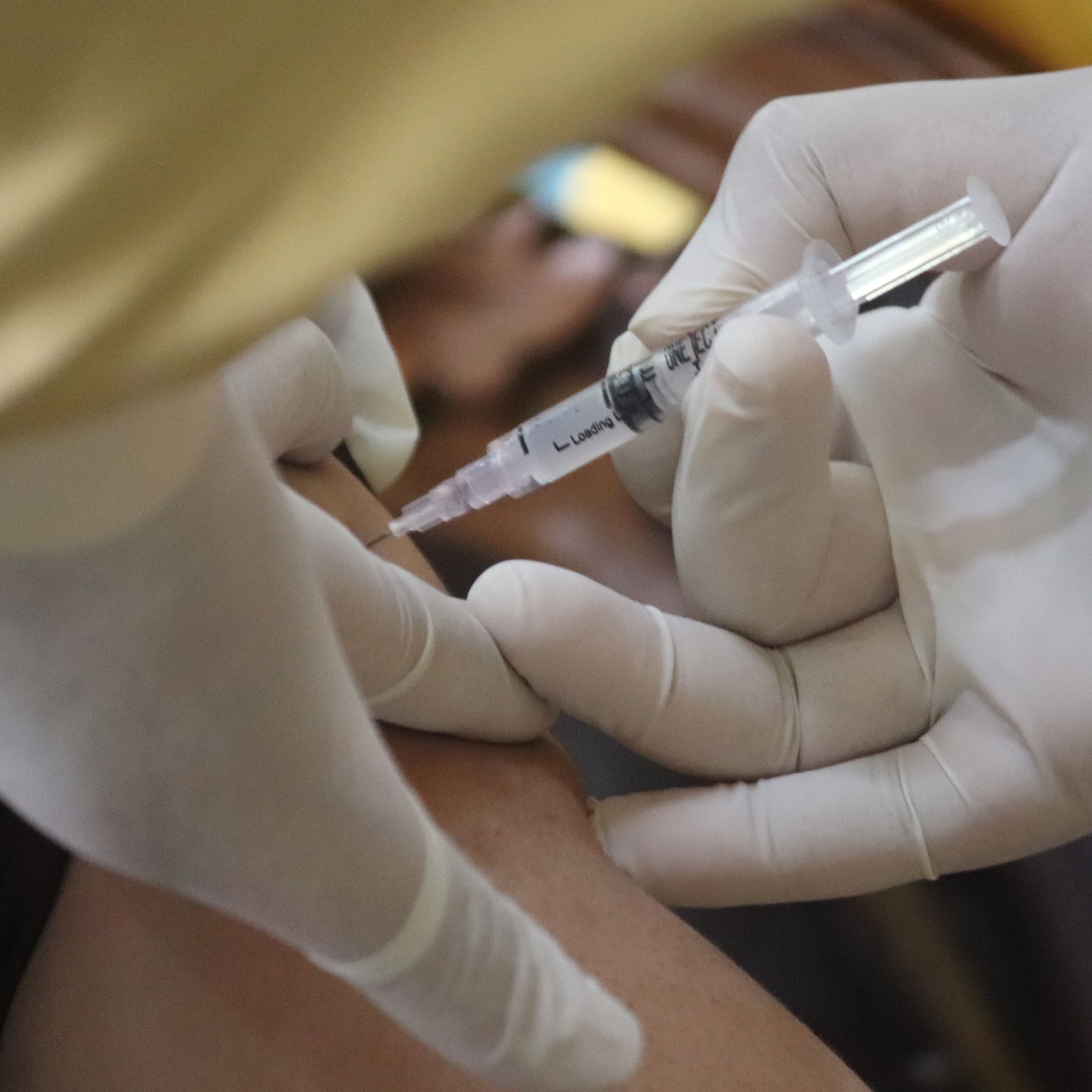Article
Myths and Facts about Vaccine Safety
Use this collection of resources on vaccine safety to help you in your efforts to educate patients and the public about the benefits of vaccinations.
Use this collection of resources and information on vaccine safety to help you in your efforts to educate patients and the public about the benefits of vaccinations.
The Institute’s mission is to “provide an independent assessment of vaccines and vaccine safety to help guide decision makers and educate physicians, the public and the media about key issues surrounding the safety of vaccines. The institute’s goal is to work toward preventing disease using the safest vaccines possible.” Visitors to this website will find vaccine-specific information that will help them learn the facts about vaccine risks, benefits, and safety. The site lists more than a dozen vaccine types under “Issues: Vax Specific” (including Hepatitis B, Influenza, MMR, Rotavirus, HPV, Tdap/Td, and Hib); clicking on a title opens a page with links to the latest studies on the safety profile, benefits, and side effects associated with that vaccine. Visitors will also find links to useful information from the FDA, the WHO, and other trusted sources. Of particular interest is the section on the MMR vaccine/autism scare.
The Institute for Vaccine Safety website also features links to these useful resources:
- Downloadable copies of the 2010 Recommended Childhood, Adolescent, and Adult Immunization Schedules
- The CDC’s Catch-Up Immunization Scheduler for Children Six Years and Younger, which is a downloadable tool that pediatricians and parents can use to quickly identify which vaccines a child has missed and when to administer future vacciones.
- The CDC and WHO Immunization Schedules
- The VISs and ACIP (Vaccine Information Statements & Advisory Committee on Immunization Practices) Recommendations
- Downloadable package inserts for US vaccines
- A list of state-by-state religious and personal belief vaccination exemptions
American Academy of Pediatrics: Vaccine Studies — Examine the Evidence
This statement from the AAP reminds parents and others that, despite some common myths and misconceptions regarding vaccine safety, “the safety and efficacy of vaccines are under constant study and scrutiny. Because vaccines are designed to be given routinely during well-child care visits, they must be extraordinarily safe. Safety testing begins as soon as a new vaccine is contemplated and continues until it is licensed and indefinitely after licensure.”
The document goes on to say that “over the past decade, questions have been raised regarding a relationship between autism and vaccines, specifically the measles, mumps, rubella combination vaccine (MMR) and the preservative thimerosal, which while never present in MMR, was present in several vaccines used in the 1990s. In 1999, vaccine manufacturers began to remove thimerosal from their products. Currently thimerosal is present in some of the inactivated influenza vaccines. The concerns regarding vaccine safety have received a great deal of attention by parents, doctors, vaccine manufacturers and the media. Dozens of studies have been performed in the United States and elsewhere. The purpose of this document [updated in November 2010] is to list those studies and provide links to the publications to allow parents and all those who administer or recommend vaccines to read the evidence for themselves. The studies provided have been published in peer-reviewed medical journals. These studies do not show any link between MMR vaccine, thimerosal and autism.”
Studies linked to in this document include:
- Lack of Association between Measles-Mumps-Rubella Vaccination and Autism in Children: A Case-Control Study (The Pediatric Infectious Diseases Journal, May 2010)
- Prenatal and Infant Exposure to Thimerosal From Vaccines and Immunoglobulins and Risk of Autism (Pediatrics, October 2010)
- On-time Vaccine Receipt in the First Year Does Not Adversely Affect Neuropsychological Outcomes (Pediatrics, June 2010)
The Immunization Action Coalition (IAC) “works to increase immunization rates and prevent disease by creating and distributing educational materials for health professionals and the public that enhance the delivery of safe and effective immunization services. The Coalition also facilitates communication about the safety, efficacy, and use of vaccines within the broad immunization community of patients, parents, health care organizations, and government health agencies.”
This CDC-funded website was developed for patients, parents, providers, and the media and “presents straightforward information about vaccine-preventable diseases and their vaccines.” Visitors will find information about “vaccine safety and the overall importance of immunization,” including “links to VISs, immunization and disease statistics, state immunization laws, state health department websites, and other topics.”
Available resources include:
- Common Misconceptions about Vaccination and How to Respond to Them -- These guidelines from the CDC list six common misconceptions about vaccination “that are often cited by concerned parents as reasons to question the wisdom of vaccinating their children” and provide facts and information that will enable physicians and other providers to “respond with accurate vaccination and immunization information and reassure parents on these specific issues.” This will help parents to discern inaccuracies they receive from other sources and ensure that patients and parents have accurate information with which to make an informed decision.
- Clear Answers and Smart Advice about Your Baby’s Shots -- Compiled by Ari Brown, MD, FAAP, this resource provides information and facts that will allow pediatricians and other providers to provide clear answers to questions that parents may have in light of the recent media attention given to vaccines, autism, and other controversies concerning vaccines.
- Too Many Vaccines? What You Should Know -- Created by the Vaccine Education Center at Children’s Hospital of Philadelphia, this resource notes that due to fears regarding the timing, number, and frequency of infant vaccinations (26 inoculations by 2 years of age and up to five shots at one time), some parents now ask their doctors to “space out, separate, or withhold vaccines” due to concerns that “too many vaccines might overwhelm a baby’s immune system.” Although this fear is understandable, given the misinformation available online and through other media outlets, the evidence that vaccines do not pose this danger is “reassuring.” This document answers questions about the active components in vaccines, whether “too many vaccines” can “overwhelm” a child’s immune system, the harm of spacing out vaccines, and the evidence supporting the safety of administering multiple vaccines in relatively short period of time.
HCPLive Wants to Know:
What other educational resources do you use when talking to patients and the public about vaccine safety and benefits?Which sources of misinformation and falsehoods about vaccine safety are most frequently cited by your patients? What approach do you take when trying to inform them that they may not be getting the most reliable information from these sources?What percentage of your patients have opted to space out/separate their childrens' vaccinations? What percentage have opted to forego vaccinations altogether?Have you personally decided not to immunize your own children? If so, how have your colleagues reacted?
Leave a comment and join the debate!





